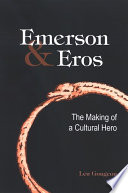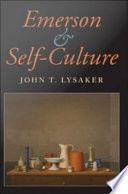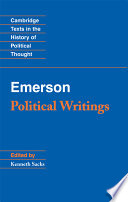 What have I to do with the sacredness of traditions, if I live wholly from within?" my friend suggested, — "But these impulses may be from below, not from above." I replied, "They do not seem to me to be such; but if I am the Devil's child. I will live... What have I to do with the sacredness of traditions, if I live wholly from within?" my friend suggested, — "But these impulses may be from below, not from above." I replied, "They do not seem to me to be such; but if I am the Devil's child. I will live...  Twelve essays [comprising Essays, 1st ser.]. - Page 42by Ralph Waldo [essays] Emerson - 1849Full view Twelve essays [comprising Essays, 1st ser.]. - Page 42by Ralph Waldo [essays] Emerson - 1849Full view - About this book
 | Len Gougeon - 2012 - 280 pages
...indicates. "On my saying What have I to do with the sacredness of traditions, if I live wholly from within? my friend suggested,— 'But these impulses may be...Devil's child, I will live then from the Devil.'" For Emerson, "sacredness" was now a matter of internal disposition and personal perception. He believed... | |
 | Hugh Ridley - 2007 - 319 pages
...opportunities of life and care not for external norms, but establish their own compelling imperatives. 'No law can be sacred to me but that of my nature. Good and bad are but names [...] the only right is what is after my constitution' (E 262). Emerson therefore uses a 25 Goethe's... | |
 | John T. Lysaker - 2008 - 244 pages
...worried that the involuntary perceptions that Emerson so esteems "may be from below, not from above": "They do not seem to me to be such; but if I am the Devil's child, I will live then from the Devil" (CW2, 30). Barbara Packer finds this remark ironic because a "decorous ex-minister in the town of Concord"... | |
 | Kenneth S. Sacks - 2008 - 228 pages
...is it, in fact, the best fulfillment of me?14 Emerson's (intentionally) outrageous insistence that, "if I am the Devil's child, I will live then from the Devil" (p. 56), acknowledges the question. Although he never resolves the conflict between freedom and accountability,... | |
 | John T. Lysaker - 2008 - 244 pages
...two lines from "Self-Reliance": "Nothing is at last sacred but the integrity of your own mind"; and: "No law can be sacred to me but that of my nature" (CW2, 30). These are perhaps Emerson's most radical thoughts as far as the history of God is concerned.... | |
| |